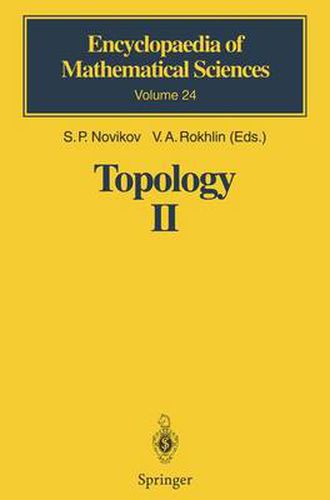Readings Newsletter
Become a Readings Member to make your shopping experience even easier.
Sign in or sign up for free!
You’re not far away from qualifying for FREE standard shipping within Australia
You’ve qualified for FREE standard shipping within Australia
The cart is loading…






This title is printed to order. This book may have been self-published. If so, we cannot guarantee the quality of the content. In the main most books will have gone through the editing process however some may not. We therefore suggest that you be aware of this before ordering this book. If in doubt check either the author or publisher’s details as we are unable to accept any returns unless they are faulty. Please contact us if you have any questions.
Two top experts in topology, O.Ya. Viro and D.B. Fuchs, give an up-to-date account of research in central areas of topology and the theory of Lie groups. They cover homotopy, homology and cohomology as well as the theory of manifolds, Lie groups, Grassmanians and low-dimensional manifolds. Their book will be used by graduate students and researchers in mathematics and mathematical physics.
$9.00 standard shipping within Australia
FREE standard shipping within Australia for orders over $100.00
Express & International shipping calculated at checkout
This title is printed to order. This book may have been self-published. If so, we cannot guarantee the quality of the content. In the main most books will have gone through the editing process however some may not. We therefore suggest that you be aware of this before ordering this book. If in doubt check either the author or publisher’s details as we are unable to accept any returns unless they are faulty. Please contact us if you have any questions.
Two top experts in topology, O.Ya. Viro and D.B. Fuchs, give an up-to-date account of research in central areas of topology and the theory of Lie groups. They cover homotopy, homology and cohomology as well as the theory of manifolds, Lie groups, Grassmanians and low-dimensional manifolds. Their book will be used by graduate students and researchers in mathematics and mathematical physics.